Nine Attention-Grabbing Inventions Unveiled at This Year’s CES
Held virtually, the Consumer Electronics Show still debuted plenty of new gadgets, from an easy-to-use beehive to a Bluetooth mask
/https://tf-cmsv2-smithsonianmag-media.s3.amazonaws.com/filer/2b/a8/2ba8c7ba-71d4-47a2-9588-67189d730507/beeing_b-box.jpg)
Like school, work conferences and visiting your grandparents, this year’s Consumer Electronics Show (CES) has been virtual-only. So instead of gathering in hangar-sized Las Vegas expo halls, those wishing to check out the year’s crop of tech and gadget debuts can simply tune in online. Some of these technologies will never catch on. Others may one day be as ubiquitous as the Xbox, satellite radio and 3D printers, all of which made their grand entrances at CES. While it's hard to predict which items will stick around, we’ve picked nine of the most useful-seeming, most surprising and most fun inventions for a possible peek into our future.
Disinfecting Bots
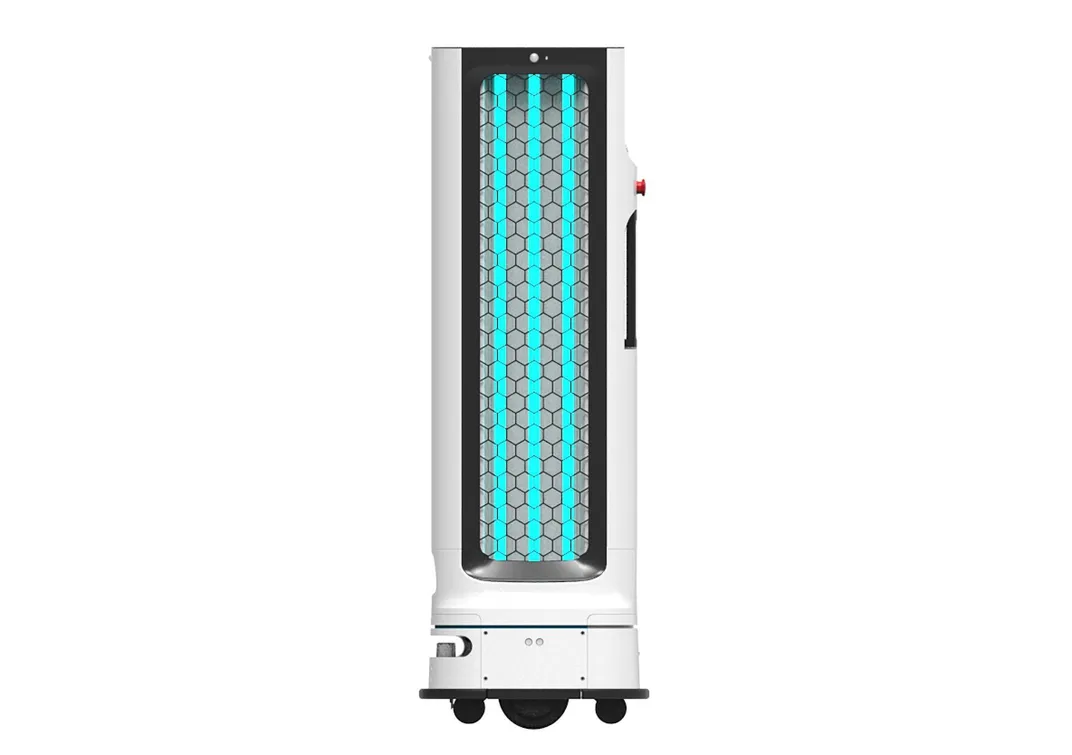
Unsurprisingly, many of this year’s CES entries were inspired by the pandemic. South Korean giant LG introduced CLOi, an autonomous UV-light robot that can roll around disinfecting high-touch surfaces like restaurant counters or elevator buttons. While hospitals have used UV disinfection for years, the pandemic has turned restaurants, schools, and even home consumers onto the technology. Though the coronavirus crisis will hopefully be over sometime this year, the company thinks the desire for disinfection will remain strong. “I don’t think that the concern over items like this is going to go away anytime soon,” LG executive Mike Kosla told the Washington Post. “This product is going to have a strong, strong life ahead of it.”
Air Safety Virus Monitors
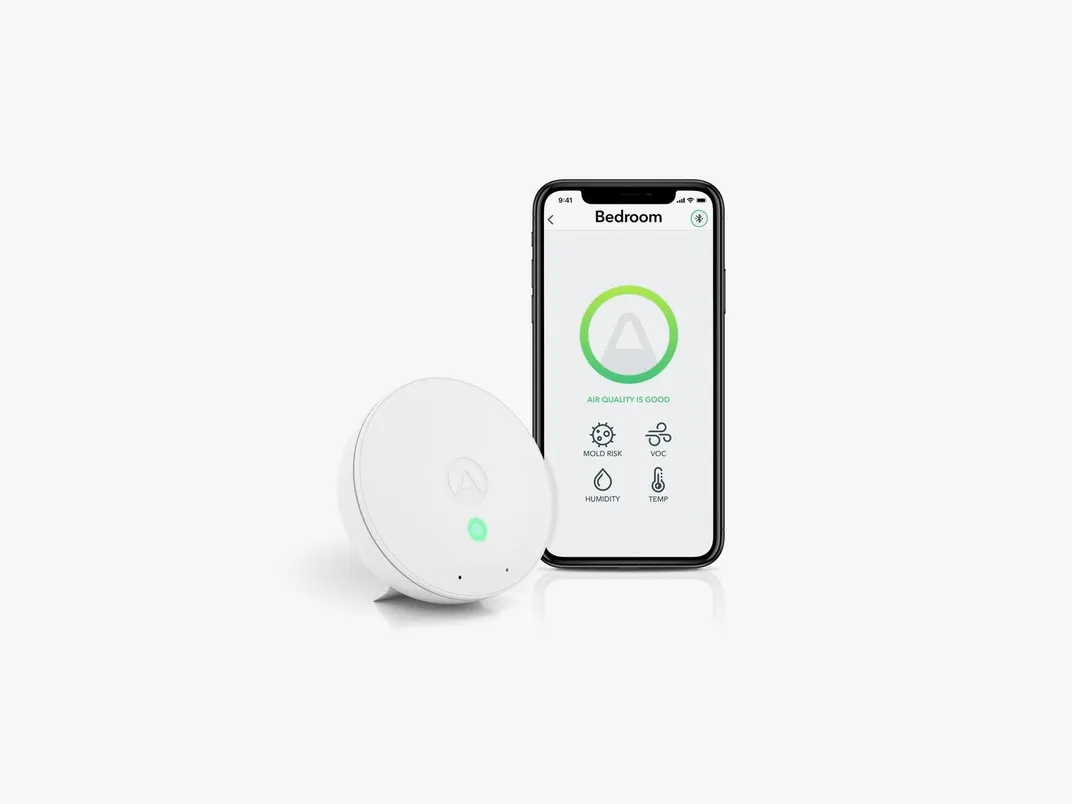
It's well-known that things like ventilation and humidity affect how well coronavirus spreads indoors. But how do you know how much ventilation is enough? Airthings sensors pair with a smartphone to monitor indoor air quality for temperature, humidity and number of people in the room (it makes a guess based on the amount of carbon dioxide present). If quality dips and virus risk rises, Airthings will suggest opening windows or making other changes. This could be helpful for businesses, such as restaurants, to know if their capacity is too high. Airthings also monitors for more traditional air quality risks like radon and mold.
Cooking Robots
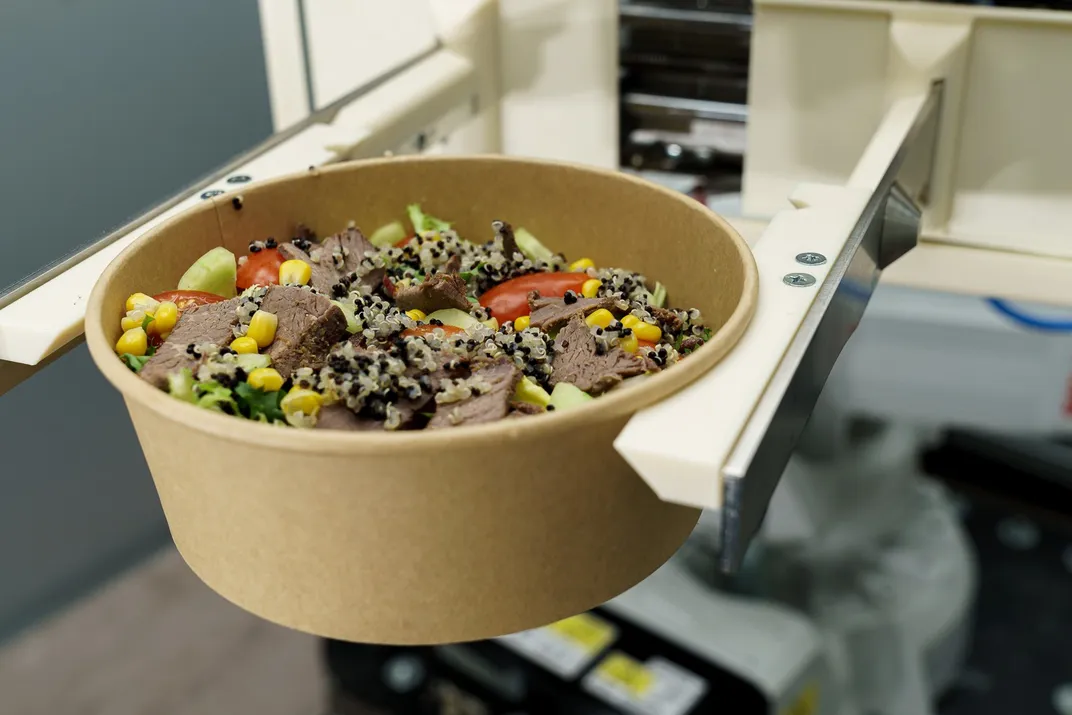
Startup RoboEatz aims to make commercial cooking faster and more efficient with a series of kitchen robots, which can chop, prep and cook food, from salads to pastas, from a pre-set list of 80 or so ingredients. The company, founded in Latvia and now headquartered in Canada, envisions its robots in corporate kitchens, university cafeterias or fast-casual chains; they say the tech could improve food safety and could also reduce Covid-19 or other virus transmission.
Bluetooth Masks
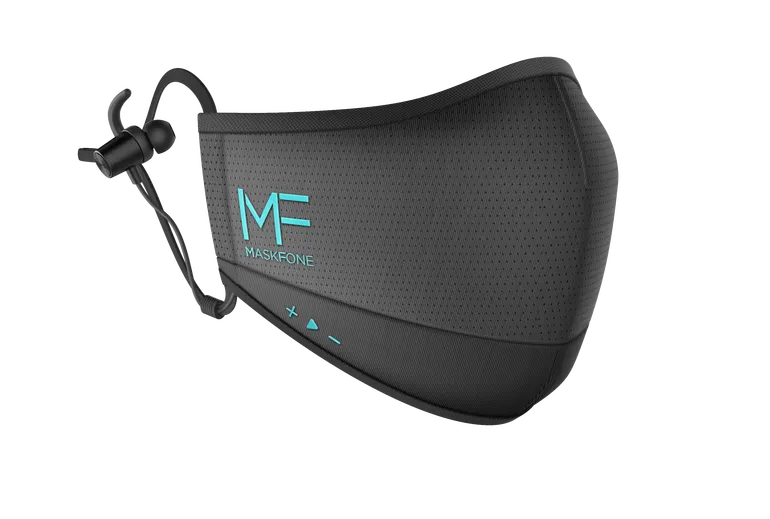
What would have looked utterly alien just a year ago now seems completely practical. Binatone’s MaskFone is a N95 mask wired for sound. Wearers can use its Bluetooth function to make calls, request a song from their own music library, or issue commands to voice assistants like Alexa. Simply take the electronics out to wash the fabric mask. Tech and social media commentator Lance Ulanoff tweeted “How did someone not come up with this sooner?”
Mix-Your-Own Perfume
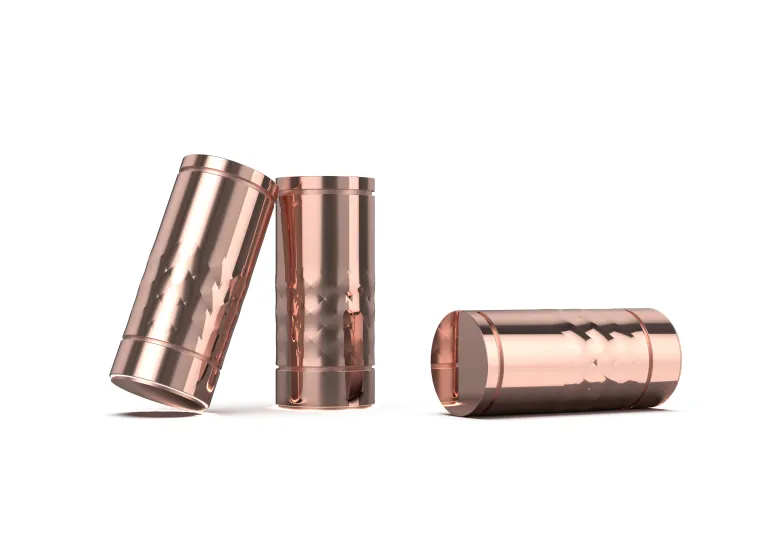
Now for something that doesn’t involve the words “pandemic,” “infection” or “mask:” A.I. perfume. Ninu is a dispenser that can be operated via smartphone app to mix a custom scent for any occasion. The rose gold cannister contains three foundational scents—floral, oriental and “fresh”—that can be combined to create new fragrances. Developed by a Slovenian company, the cannister has an A.I. function that can blend scents based on things like temperature and season. “Not every perfume is appropriate for every mood or every event you go to, and not every perfume smells the same on everyone because of your skin type and so on,” company founder Marko Matijevic told Al Jazeera.
Rollup Smart Chessboard

The recent popularity of the chess-themed Netflix miniseries “The Queen’s Gambit” combined with lockdown boredom sent consumers rushing to order chessboards—alas, many were sold out before Christmas. For socially distanced playing, you can’t do better than Square Off’s A.I. chessboard, which combines the classic feel of real chess pieces with an A.I.-enhanced board that allows you to play remotely with friends or with a built-in A.I. A rollup version makes it easy to grab and go.
Yoga-Teacher-in-a-Mat
With many gyms and yoga studios closed, people are exercising at home instead, following YouTube workouts or splurging for exercise bikes. Aspiring yogis unsure of their posture can now turn to YogiFi, a smart yoga mat that uses sensors to correct form and give feedback. That mat, which learns your flexibility and ability level, can be paired with smartwatches, fitness trackers and apps to add features like gamification (try to reach the next level!) and virtual training videos. It can also be used for non-yoga workouts like Pilates, Zumba and Crossfit.
At-Home Recycling Machine
Now that China is no longer accepting the world’s recycling, it’s much more likely that your empty milk cartons and soda cans are actually going from curbside to landfill. Enter the Lasso home recycling machine. About the size of a washing machine, the Lasso steam cleans, sorts and grinds up your glass, plastic and metal recycling. When it fills up—anywhere from three to eight times a year—it will message you to schedule a pickup. Lasso will then take your recycling to a facility to ensure it’s recycled—you can track it the whole way.
Balcony Bee-Keeping Box
The pandemic has driven an upswing in gardening and home-canning: why not beekeeping? Italian company Beeing’s B-Box is a small hive that works with a sensor to monitor the bees’ health and environment. It also has a special design that separates the extra honeycomb from the bees, so you can harvest the honey without suiting up like an astronaut. Plus, it’s small enough to keep on even a modest urban balcony.
/https://tf-cmsv2-smithsonianmag-media.s3.amazonaws.com/accounts/headshot/matchar.png)



/https://tf-cmsv2-smithsonianmag-media.s3.amazonaws.com/accounts/headshot/matchar.png)